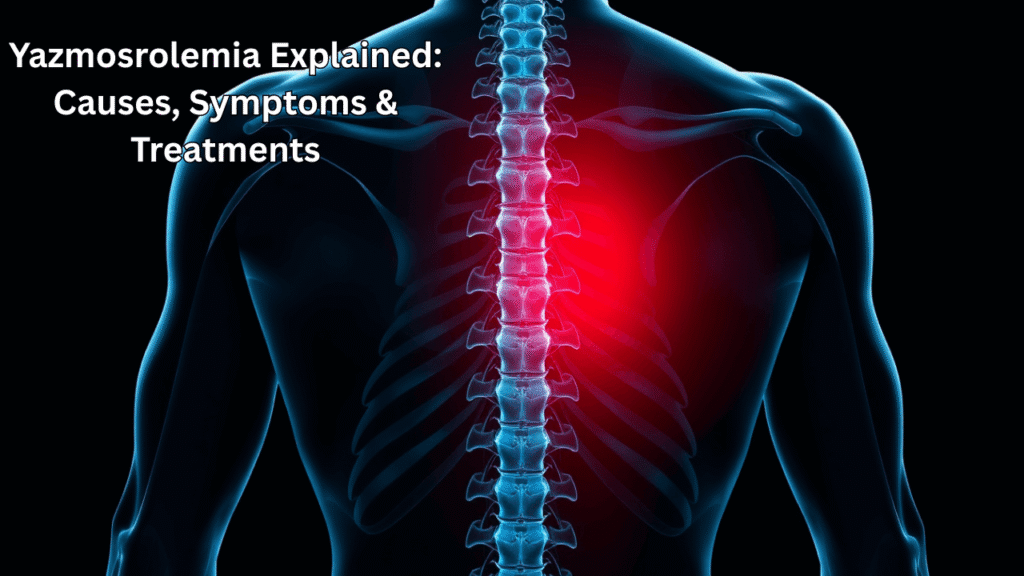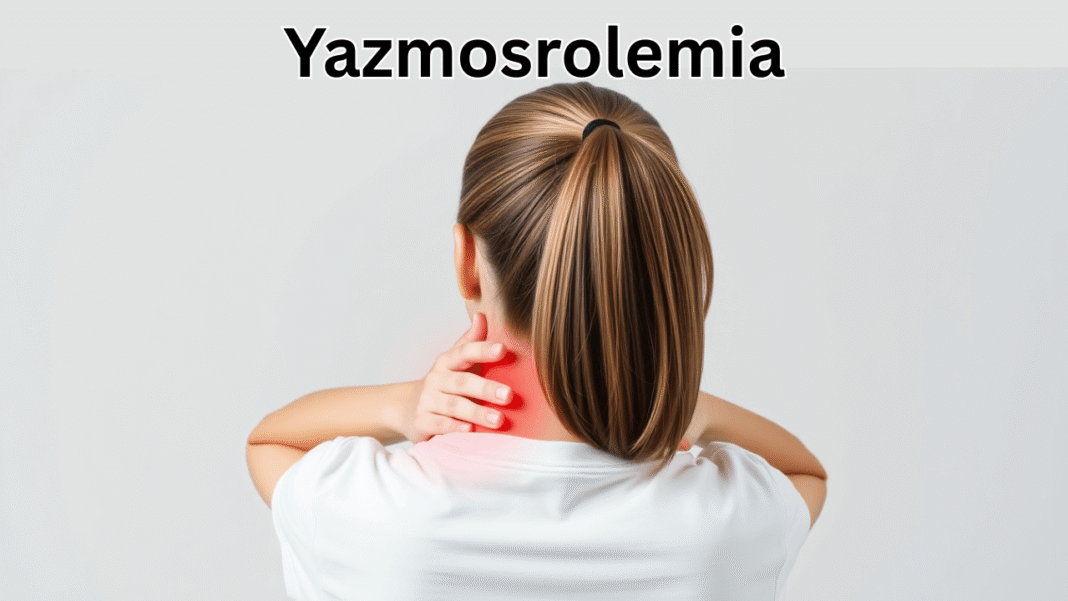Breaking it down, Yazmosrolemia isn’t a term commonly thrown around like “cold” or “allergy,” but it’s a very real—and often more disruptive—condition. It’s medically classified and affects specific bodily functions. The name itself comes from a mix of Latin and Greek medical roots. Behind that complex label are very real symptoms that many people struggle with every day.
Healthcare providers spot yazmosrolemia through a combo of signs: what the patient feels, what doctors observe, and a bit of process-of-elimination magic. It often mimics other health issues—so, not surprisingly, it gets misdiagnosed. That’s why nailing the correct diagnosis early is a game-changer.
And get this—it’s more common than you might think. Depending on where you live, your family background, and even the air you breathe, yazmosrolemia could be lurking closer than you’d expect. That’s why doctors are urging people to learn the signs, act fast, and not brush it off as “just being tired” or “stressed out.”
What’s Causing Yazmosrolemia in the First Place?
Let’s get real—yazmosrolemia doesn’t just show up uninvited. There are reasons behind the scenes, and they’re not always obvious.
1. Genetics—Blame It on the Family Tree
This condition runs deep. If your parents or grandparents had it—or even had weird symptoms that were never clearly diagnosed—your risk goes up. Scientists have even pinpointed specific gene mutations that raise the chances. Genetic screening is starting to become a thing for families with a history of unexplained chronic symptoms.
2. Your Environment Might Be Fueling It
Live in a big city? Work in a place that smells like chemicals all day? Pollution, toxins, even certain infections—especially during childhood—have been linked to triggering yazmosrolemia. Basically, the world around you might be more involved in your health than you ever imagined.
3. Lifestyle—Yep, It Matters
You knew this was coming. The trifecta of trouble: bad diet, no exercise, and stress. All of them can either cause or seriously worsen yazmosrolemia. Want proof? People who switch to antioxidant-rich diets and start moving their bodies a little more? They often report fewer symptoms. Nothing flashy—just small, consistent steps.
Spotting Yazmosrolemia: What Symptoms Should You Look For?

Here’s where it gets tricky. Yazmosrolemia doesn’t always scream for attention. Sometimes, it just taps on your shoulder repeatedly until you finally notice.
Mild Symptoms That Sneak Up on You
- Constant fatigue—even after a full night’s sleep
- Slight mood swings
- Persistent headaches
- Occasional stomach issues
Seems manageable, right? That’s the trap. These mild signs often get ignored until they stack up and start affecting work, relationships, and overall sanity. Imagine being in a meeting, barely able to stay alert—not because you’re bored, but because your body is running on empty.
When Things Get Worse—Severe Symptoms
- Chronic, widespread pain
- Anxiety or deep depression
- Stiff joints that make basic movement tough
- Brain fog or memory issues
We’re not talking about just a bad day here. These symptoms can take over your life. Some people feel like they’re locked in their homes—too tired, too sore, too foggy to even go out. It’s not just physical; it’s emotional and psychological. That’s why early detection is key. The sooner it’s diagnosed, the sooner treatment starts, and the better life can get.
Managing Yazmosrolemia: What Are the Treatment Options?
Here’s the good news: treatment for yazmosrolemia doesn’t mean giving up your life. It means reshaping it—with help.
Medications That Actually Help
Doctors usually start with medications. We’re talking about anti-inflammatory drugs, corticosteroids, and specific pain relievers. Each prescription is customized depending on your exact symptoms. These aren’t just band-aids—they target the actual mechanics of the disease.
Therapies That Go Beyond Pills
- Physical therapy helps with movement and flexibility.
- Cognitive behavioral therapy (CBT) gives people tools to deal with the mental rollercoaster.
- Occupational therapy helps folks get back to daily tasks they’ve struggled with.
These aren’t just appointments to check off a list. They’re proven ways to take back control.
Lifestyle Changes That Matter
No, you don’t have to become a health guru. But making changes—ones you can stick to—makes a real difference. Think:
- Eating clean, anti-inflammatory foods
- Moving regularly, even just walks
- Getting quality sleep
- Reducing stress with meditation, hobbies, or social time
And let’s not forget the emotional side. Yazmosrolemia doesn’t just hit your body; it can isolate you. Connecting with others—whether through support groups or just trusted friends—can be the anchor you need during rough weeks.
If you’re exploring ways to support your body naturally while managing conditions like yazmosrolemia, you might want to check out our detailed guide on Wellhealthorganic Fitness: Natural Health Made Simple. It dives into holistic approaches to fitness and wellness that align perfectly with lifestyle strategies for chronic conditions—think anti-inflammatory diets, mindful movement, and stress reduction, all simplified for everyday life.
Why Awareness Matters More Than Ever
Yazmosrolemia isn’t a passing trend or an obscure condition. It’s affecting real people—quietly, deeply, and often without them even knowing what’s wrong.
Raising awareness isn’t just about slapping posters on clinic walls. It’s about empowering everyday people to recognize that something is off and do something about it. It’s about pushing for better research, better tools, and better empathy in the healthcare system.
As researchers dive deeper into understanding yazmosrolemia, the hope is clear: better treatments, earlier detection, and one day—prevention. But for now, staying informed is our best weapon.
Bottom line?
If you or someone you know has unexplained fatigue, chronic pain, or just feels “off” more days than not—don’t ignore it. Yazmosrolemia might not be in every medical headline, but it deserves your attention. And the more we talk about it, the closer we get to real change.



